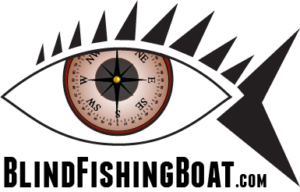Following your Dreams
Leaving my home town and moving to the city to attend university signaled the beginning of a profound change in my life that was further magnified by my increasing loss of vision. Starting a family and building a career further distanced me from my hobbies that once dominated my existence — being out-of-doors. More importantly however, successfully negotiating this transition in my life was possible because of the support I received from numerous individuals.
Having since accomplished many of my goals I’m once again able to focus on my hobbies. Even though I no longer have any residual vision, the unique experience I have gained over the years is allowing me to excel in ways that, I’m told, deserve to be shared. The “Blind Fishing Boat” is my endeavour to transfer my knowledge and experience of fishing and boating as a person without sight to others.
Being without sight can be tough, no doubt, but sharing what I’ve learned can save a lot of people from having to “reinvent the wheel”. I’m also not beyond learning myself, and having the opportunity to fish with others makes it possible to assess new fishing techniques from my own unique perspective as a fisher without sight.
There is a lot of fishing equipment being sold for just about every possible species of fish and method of catching them. Much of it is designed to catch the fisher first. Sorting out what works and how to best use it to ones advantage is just part of what I’m posting reports about on my website. Narrative descriptions on performing tasks without sight such as tying knots, netting andbreleasing fish, and even cleaning and cooking ones catch,bare all areas I intend to thoroughly research. Educating others such asbguides and fishing lodge owners on appropriate ways to interact with thosebwithout sight is also a service I’ll provide having written my undergraduate thesis on, “Etiquette When Interacting with the Blind”. Finally, responding to requests for information from fishers and boaters who are themselves losing their sight is probably one of the more challenging and potentially rewarding aspects of hosting this on-line service.
While my field trialing of various fishing and related technologies is important, I’m also going beyond what’s already available. It’s my dream to conceive new innovative technologies that will make fishing and boating more fun and safe for everyone. I had a fair bit of experience in this field already by leading on projects such as Web-4-All (see article: “Canada Stands Tall with Web-4-All”
<http://www.afb.org/afbpress/pub.asp?DocID=aw060307&select=1> ).
As much as I love fishing, I’m driven by my need to discover technologies and their application in creating the world’s first fishing boat that can be independently operated by a person without sight. After spending almost two years researching and trialing different devices, I can relate to the Wright brothers when their first attempts to fly ended less than satisfactorily. Like every seemingly obvious answer, the devil always seems to be in the details. Thank goodness for supportive friends and sponsors who share my dream.
Some might wonder if what I’m doing is safe, or even legal? I have my Pleasure boat operator’s certificate and marine radio license. I’m also not zooming around on lakes by myself. While I admit that I do go fishing alone on small isolated bodies of water in my 12-foot plastic folding Porta-Bote with the Minn Kota electric motor, even then there is always someone sighted who I can communicate with via radio, or visa versa, should the need arise. In the case of the larger 20-foot power catamaran research vessel, a sighted spotter will always be on board. I’m fortunate in that I have an ever-increasing community of friends supporting me in realizing my dream. I know it’s not because they think there are millions of people without sight itching to fish from their own boats, and it’s not just because aging baby-boomers live in fear of losing their sight. People view this as good for everyone as we can all benefit from learning to better utilize our non-visual senses. After-all, if you think about it, fishing is really about pursuing the unseen. In the end though, it really comes down to just having the opportunity to get out on the water and go fishing.
Lawrence Euteneier
www.blindfishingboat.com
Info@BlindFishingBoat.com
Copyright Jan 2008 by BlindFishingBoat.Com

Comments are closed.